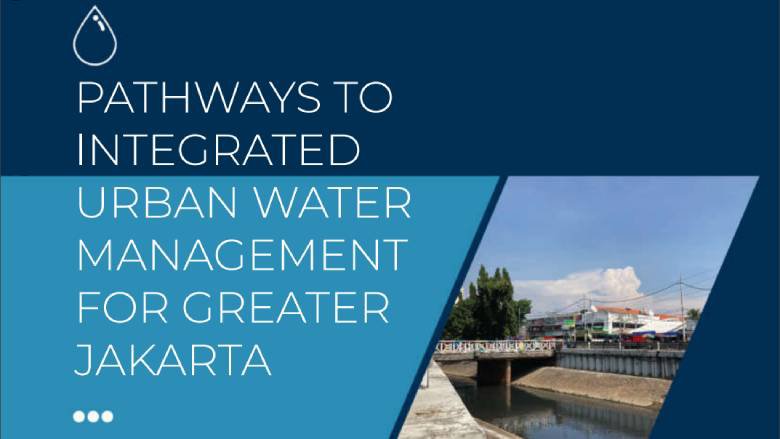Water insecurity challenges in Indonesia are of significant concern, particularly in regions that are critical for economic growth. A third of Indonesia’s river basins are under stress year round, and almost half are under stress during the dry season. Projections show that addressing water insecurity in a concerted and integrated manner could help to drive economic growth and result in positive development outcomes in the country.
Nowhere is addressing water insecurity more critical than in the Greater Jakarta region, which produces 22 percent of Indonesian total GDP output and is home to 12 percent of the country’s total population. Greater Jakarta, comprising 14 district and municipal governments under three provincial jurisdictions, is already experiencing extreme deficits in water balance, which are compounded by regular and widespread flood events and deteriorated water quality from poor sanitation. Climate projections also point to heightened vulnerability from extreme weather events, which are expected to cause more drought and increased rainfall.
The report, Pathways to Integrated Urban Water Management for Greater Jakarta, offers recommendations to support the adoption of IUWM in Greater Jakarta. The information is intended to provide immediate actionable interventions in the short term, while building up the knowledge base and expertise for more strategic institutional planning and development approaches in the longer term.

About GWSP These documents and tools received the support of the Global Water Security & Sanitation Partnership (GWSP). GWSP is a multi-donor trust fund administered by the World Bank’s Water Global Practice and supported by Australia’s Department of Foreign Affairs and Trade, Austria’s Federal Ministry of Finance, the Bill & Melinda Gates Foundation, Denmark’s Ministry of Foreign Affairs, the Netherlands’ Ministry of Foreign Affairs, the Swedish International Development Cooperation Agency, Switzerland’s State Secretariat for Economic Affairs, the Swiss Agency for Development and Cooperation, U.K. Department for International Development, and the U.S. Agency for International Development. Please visit us at www.worldbank.org/gwsp or follow us on Twitter #gwsp. |
